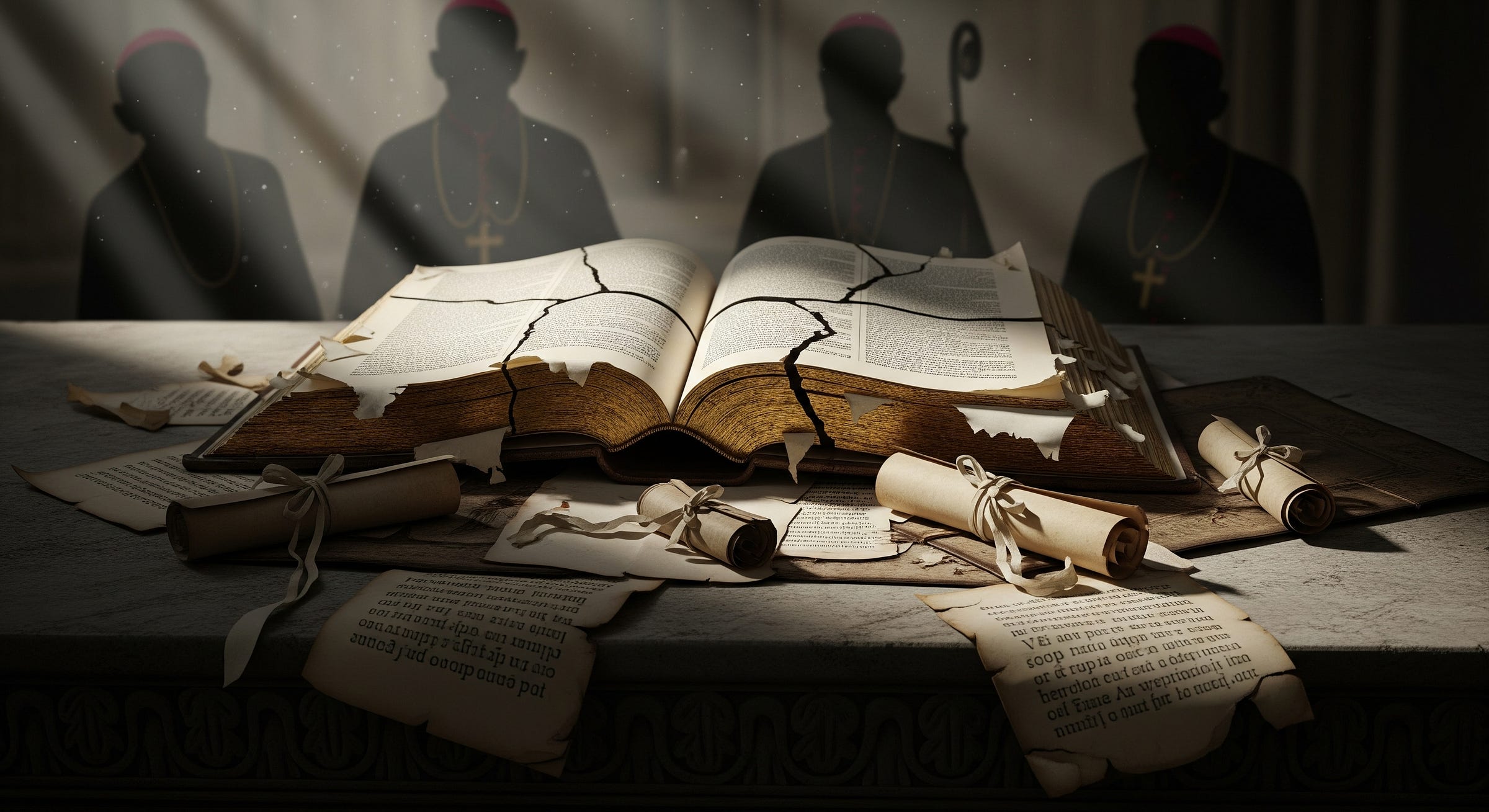Bible’s Missing Books They Don’t Preach About
The gospels of Mary, Thomas, and Judas were cut out to keep people obedient—what else got buried?

The average Christian thinks the Bible dropped out of heaven leather-bound with gold edges. Wrong. What you call “God’s Word” is a chopped-up, censored, and politically edited collection. Plenty of scriptures were kicked out, buried, …


